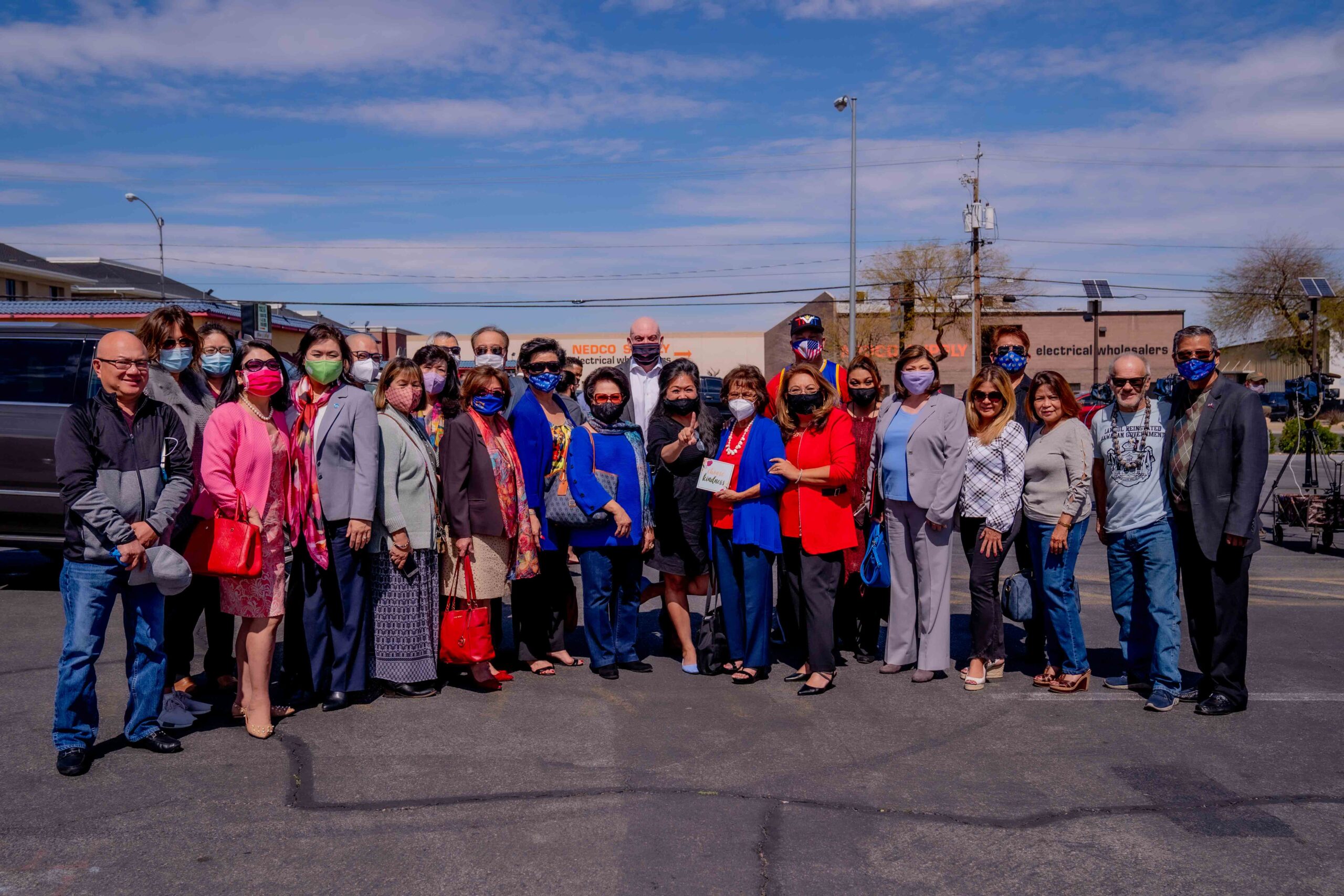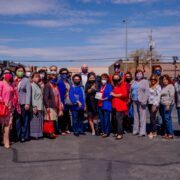
THE Las Vegas Metropolitan Police Department is addressing growing safety concerns within the local Asian American and Pacific Islander (AAPI) community following the recent violent attacks across the country.
During a press conference on Thursday, March 18, LVMPD Spring Valley Area Command Capt. Nick Farese said: “In light of the many recent events that occurred throughout the country, targeting Asian Americans, topped with a horrific shooting in Georgia that targeted massage parlors where innocent people lost their lives, there is a legitimate safety concern for our Asian community here in Las Vegas.”
“Even though we have not had any documented crimes against this community related to recent events, we understand as people the fear that is being discussed today is real,” he added.
Farese highlighted the increased police presence in Chinatown Plaza, the center of the AAPI community in Las Vegas, in response to the recent Atlanta spa shootings that left eight people dead, six of whom were Asian women.
“Upon learning of the events in Georgia, we immediately increased our patrols in the area and provided outreach to business owners and patrons, ensuring they are safe and letting them know they do not need to live in fear,” said Farese.
“We continue to communicate directly with established stakeholders to share information, which in turn they share within their communities,” he added.
According to Farese, the department is committed to keeping the Asian community in Las Vegas safe.
“While this fear is understandable, it is important to stress that LVMPD is committed to the safety of our community and we will not allow a specific group to be targeted or attacked,” he stressed.
He also urged the public to look out for their neighbors and report any suspicious activity they might see.
“I ask for the community’s support in reporting any and all suspicious activity. Being a good witness and looking out for your neighbor are paramount to the success of Las Vegas,” Farese said.
“Our Asian community plays a crucial role in our city, and they need and they deserve the support of all of us to move past hate and ignorance and to live safe and free in this place we all call home,” he added.
Sonny Vinuya from the Las Vegas Asian Chamber of Commerce called for the Asian community to unite and watch out for one another.
“First and foremost, hate crimes against any race should never be tolerated. We are very fortunate, as reports show, that we have not had any incident here in Las Vegas. I do urge everyone to stay safe and be vigilant, but moreso, this should be a time for the AAPI community to unite and watch out for one another,” he said.
“It is time for us to build cultural unity. A community that protects each other, respects one another, faces hard times like this together and uplifts the members of our community,” he added.
Ending the press conference, Farese maintained that cultural barriers would not be a hindrance for the police department in keeping Las Vegas safe.
“Regardless of your status in this country or what your beliefs are, the police department doesn’t take that into account. Every victim is treated with the same empathy, dignity, and respect that they deserve,” he said.
Stop AAPI Hate, a national coalition that tracks anti-Asian American discrimination, reported on Tuesday, March 16 that from March 19, 2020 to February 28, 2021, it has received 3,795 firsthand incidents of racism and discrimination from all 50 states and the District of Columbia.
Of that number, 503 incidents took place in the first two months of 2021 alone.
Chinese are the largest ethnic group (42.2%) that say they’ve experienced hate, followed by Koreans (14.8%), Vietnamese (8.5%) and Filipinos (7.9%), the group found.






